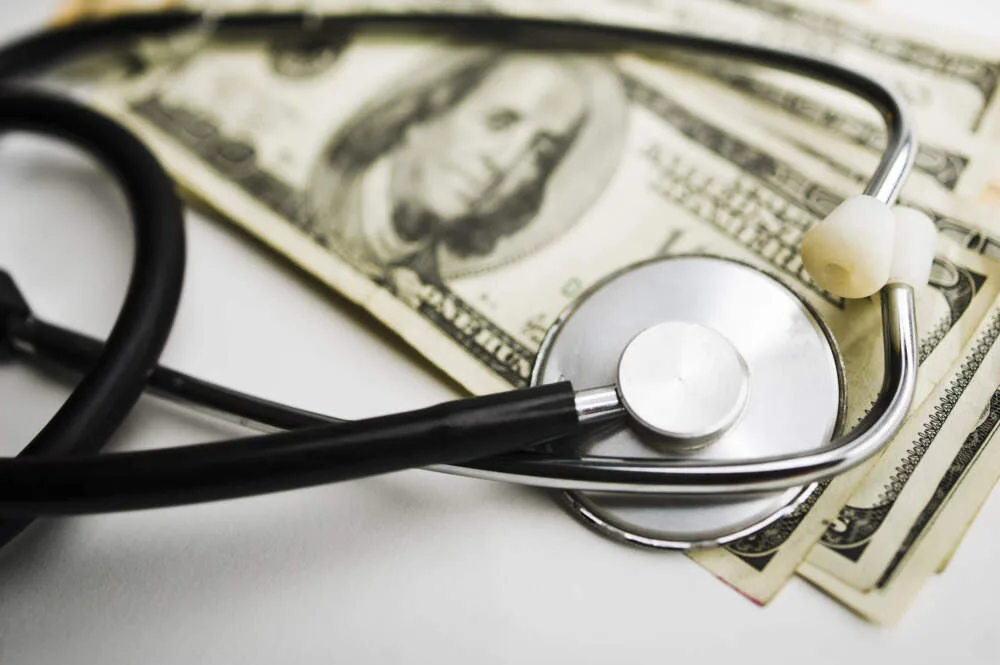
It’s usually economists, historians, advocates or politicians who make the case for reparations to address centuries of harm for people of color that started with slavery. One form reparations can take is direct payments that could close the wealth gap between Black and White Americans. That gap, which includes income and assets like a home, is vast and growing.
But some health and public health experts are weighing in as well. They’re making the case for reparations as a tool to reduce deep disparities in health for people of color. Multiple studies have linked racism to poorer health and shorter life expectancy for Black Americans compared to whites. Yet, broader reparations efforts have struggled to find political support and funding.
Dr. Mary Bassett, director of the FXB Center for Health and Human Rights at Harvard, says that needs to change.
“Reparations can be seen as a health intervention, not only a moral repair, but a way of addressing these long-standing health inequities,” Bassett told an audience at Harvard’s T.H. Chan School of Public Health last week. “Money has to be part of it, let me be clear about that.”
Bassett co-authored a study that suggested closing the wealth gap could narrow the difference in life expectancy between older Black and white adults.
But the cost of providing meaningful compensation to descendants for the harms due to slavery is sobering. A separate study estimated the national price tag for lost wages alone, plus interest, could top $14 trillion.
Critics — and even some supporters of reparations — call that figure unrealistic for any reparations program to pay out today. But the study’s authors say it’s the minimum needed because $14 trillion only accounts for past harms. It doesn’t include the ongoing financial impact of discrimination in housing, employment, the legal system and on health.
There’s little research about whether direct payments to individuals would reduce high rates of infant mortality, heart disease and stroke suffered by Black Americans. That’s why some supporters of “health reparations” are calling for a definition that goes beyond cash payments.
Dr. Avik Chatterjee says it should include hospitals and health care professionals who have not offered Black patients the same care white patients receive. He says health systems can make amends and prevent further damage by ending racist practices, opening clinics in underserved areas or taking other steps guided by community input.
“Health reparations doesn’t necessarily mean cash to specific people,” said Chatterjee, an associate professor at Boston University School of Medicine. “It may mean changing the way we allow people to access health care. That will improve the health disparities we see now.”
Some prominent health institutions, including Mass General Brigham, Boston Medical Center and Cambridge Health Alliance, say they are already working to address systemic racism. The Massachusetts Department of Public Health launched a health equity office this year to address racism as a serious public health threat. A group of health care leaders of color is making the economic case for change using an estimate that shows health disparities cost Massachusetts nearly $6 billion a year.
Despite these efforts, many initiatives aimed at reducing health inequities are still struggling for funds. Boston City Councilor Julia Mejia told the audience at Harvard she has been advocating for a proposed Neighborhood Birth Center in Boston. Research shows similar birthing centers may help improve patient experiences and reduce the use of medical interventions during delivery. Mejia said she hopes the center can help improve maternal mortality rates. Black women are nearly twice as likely to die during or shortly after birth than white women in Massachusetts, according to state data.
Mejia helped launch a reparations task force in Boston that is expected to issue recommendations next year. A separate grassroots group in Boston is calling for $15 billion in reparations, but did not specify health care as an area of focus. Mejia argued health is fundamental to repairing the harm caused by centuries of discrimination.
“Health is wealth,” Mejia said. “People are not going to do well unless they are well.”

